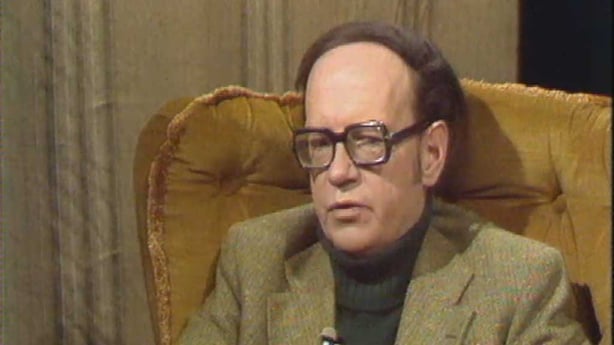“Money is better than poverty, if only for financial reasons.” Woody Allen
The news that Donal Ryan, the successful and lauded author of The Spinning Heart and All We Shall Know, was headed back to his Civil Service job in order to pay his mortgage was greeted as another death knell for the writing life in Ireland.
All Donal Ryan did was state a fact for the majority of authors. His relative success in terms of notoriety and book sales has not translated into a full-time writing career. This is the norm.
While Ryan is one of the worthy and exceptional ones on the page, that still doesn’t make him a financial exception off it - the sums of literary fiction don’t add up to a comfortable life.
Unless you embrace penury, as many writers did in the mid-20th century in this country, and died as a result of it, then you better start looking for alternative sources of income; especially if you have notions of having a family life or a subsistence beyond what is doled out at the welfare office or by publishers as an advance.
***
There followed well-meaning articles expressing the news cycle’s faux-outrage. Seemingly money is not the prime motivation for 99.9 per cent of writers (Presumably the .1% being the greedy JK Rowling and Martin Amis).
We had arrived at that old chestnut: sure, writing is vocational - they’d be doing it anyway! Thankfully, the whole thing could be forgotten now. With Donal Ryan commuting from his writer’s desk to his 9-5, we could all move on with our own vocations.
Then an email dropped into my inbox: “Would you do a reaction piece to the Donal Ryan story?” My editor went on, “You know, Civil Servants as authors etc a la Flann O’Brien…”
Flann O’Brien died an alcoholic in his bed. By the end, he was hardly able to make it past lunchtime before being incapacitated. His life was “No laughing matter,” as Anthony Cronin outlined in his biography.
Much of his fame and notoriety came, as it so often does, posthumously. Try telling the kids that in the next life there’ll be food on the table and Christmas presents – “I’m very well respected there, lots of friends…”
I voiced some concerns:
“Immediate thoughts are this comes back to ourselves quite quickly. Our new fiction/new writing section, do we pay authors for this or do we pay in exposure for their work?”
The response, in fewer words, was “exposure”. That makes us part of the problem, I thought, and open to ridicule if we pontificate on the subject.
Publications should have to put a monetary value on “exposure,” how many books do your readers physically go out and buy? But then again, which is in worse shape, journalism or literature?
And it is worth noting that most of what we now consider as the twentieth century literary masterpieces – Ulysses, The Waste Land, Beckett’s trilogy – were published privately, not commercially.
***
It was while sitting in a pew at the funeral of another poet that Anthony Cronin first spoke to Charles Haughey about an idea that he’d been thinking about for some time. We ought to do something for these artists during their lives, Cronin said, instead of all this hagiography we go in for once they’re buried.

Cronin was in a position to make such a comment; he had seen his richly talented circle of friends eviscerated by poverty and its by-product: drink. He skillfully documented their decline in his memoir Dead As Doornails.
With Haughey, Cronin saw the opportunity to effect some political change. The politician reciprocated that will and things were brought into being.
The result was the imperfect Aosdána. A Cnuas (stipend) of €17,180 or so continues to be awarded to artist members who can prove their need of it. However, Aosdána is limited to 250 members “whose work has made an outstanding contribution to the creative arts in Ireland.” Some deem the process of selection behind the programme as elitist.
But the alternatives are scarce. Are there any new ideas for supporting the arts out there today? Or will writers and artists, like Donal Ryan, always be moonlighters, their art grabbing at the tufts of the day, their ideas stunted by the residual tiredness of the desk job.
Sure if we could just put a price on exposure, and do it during our lifetime, please.
*Full disclosure: This writer got paid a small amount for this piece. Course, I’d have done it anyway.


